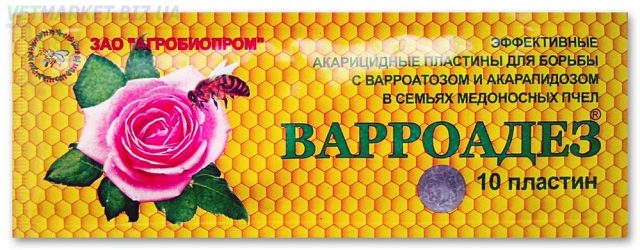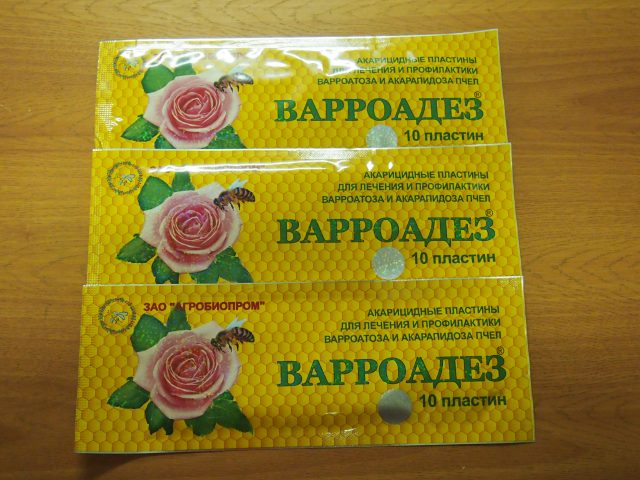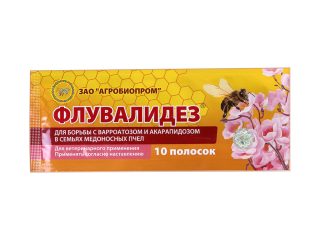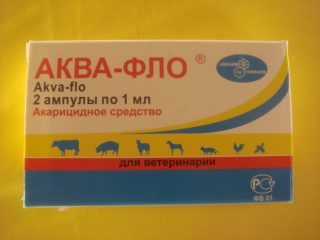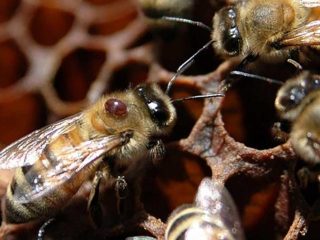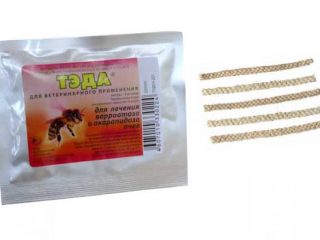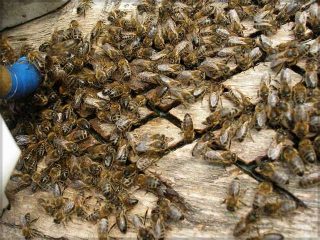Content
Varroadesis is an effective acaricide that allows beekeepers to get rid of two types of bee parasites - Varroa destructor and Acarapiswoodi mites. It is a highly specialized pesticide with high efficiency. Observing the instructions for the use of Varroades, you can save the bee colony from parasites without sacrifice among the population of the honey plants themselves.
Application in beekeeping
Varroadesis is used in beekeeping for the prevention of diseases of bee colonies: varroatosis and acarapidosis. It is believed that in Eurasia, absolutely all bee colonies are infected with varroatosis.
Composition, release form
The main active ingredient of Varroades is amitraz... This is an organic compound of artificial origin, which is an acaricide, that is, a means aimed at destroying a specific group of arthropods - ticks.
Another component of the preparation is coriander oil.
The drug is produced in the form of strips stored in sealed foil bags. Each bag contains 10 strips up to 15 cm long.
Pharmacological properties
The acaricidal effect of Varroadosis is significant. It is most effective when used against adult forms of bee mites of the varroa and acarapis species.
Traditionally, amitraz is used as an emulsion in water, which is then used for spraying, bathing animals or making contact strips. In Varroadesa, the latter is used.
The concentration of the active substance with this method of application is from 200 to 500 mg / l, which is a fairly high concentration, however, since the bees are in contact with a small area of the strip, such a concentration does not pose a danger to their life.
Instructions for use
The container with Varroades is opened immediately before its use. A strip of the preparation is suspended in the hive between the central honeycomb frames. Before placing the strip in the hive, you should make holes in it along the edges to fix it exactly in the center of the "street" along which the bees will move.
Depending on the number of bees and brood in the hive, the strips stay in it for 3 to 30 days.
Dosage, application rules
The dosage of Varroadesa depends on the size of the bee colony. For large hives (the number of honey frames is more than 7), it is enough to place two strips of Varroades, for small hives (with 6 or fewer frames) - one.
Side effects, contraindications, restrictions on use
Acaricides are a highly specialized group of pesticides and therefore can be hazardous to insects (i.e. bees). Therefore, it is not recommended to exceed the maximum permissible dose of the drug (1-2 strips per hive, depending on the size of the family).
Shelf life and storage conditions
The shelf life of Varroades is 24 months from the date of its manufacture.
Storage conditions are standard for products of this kind - a cool place (temperature from 0-25 ° C), devoid of sunlight. The drug is stored separately from food and out of the reach of children.
Conclusion
Instructions for the use of Varroades are quite simple, even a novice beekeeper can use the drug. Varroades is highly effective against varroa and acrapis mites. Today it is the most effective remedy against ticks in bees.
Testimonials
